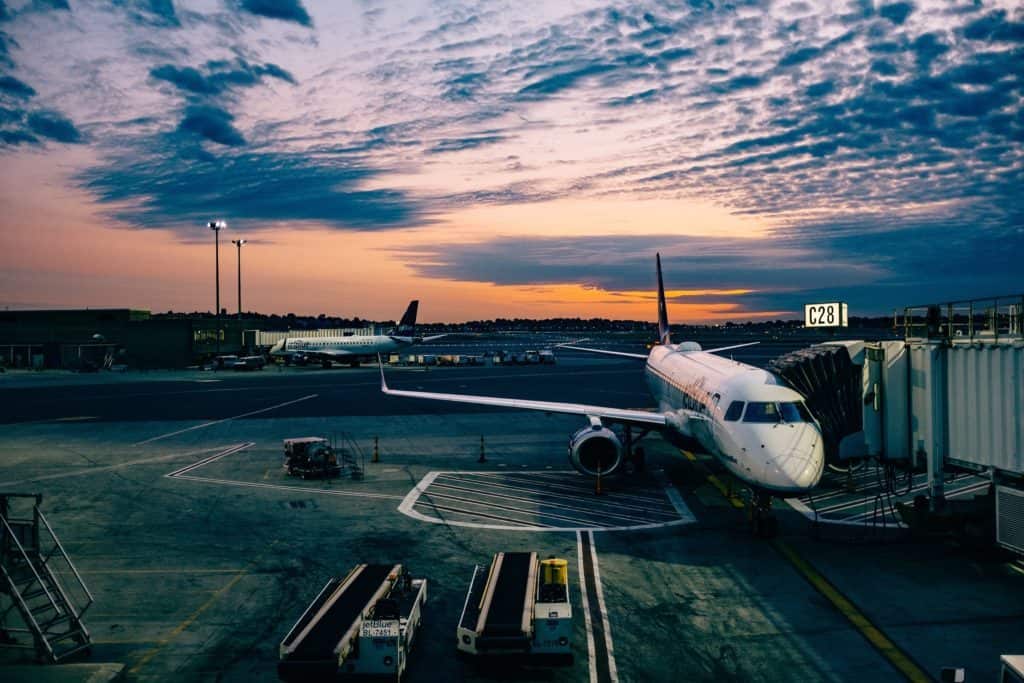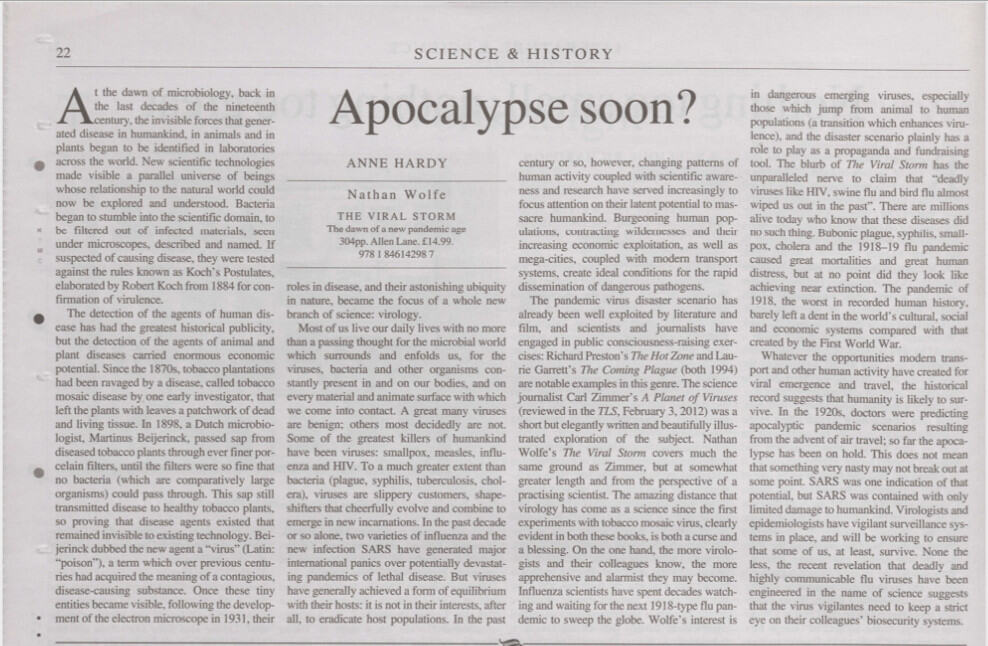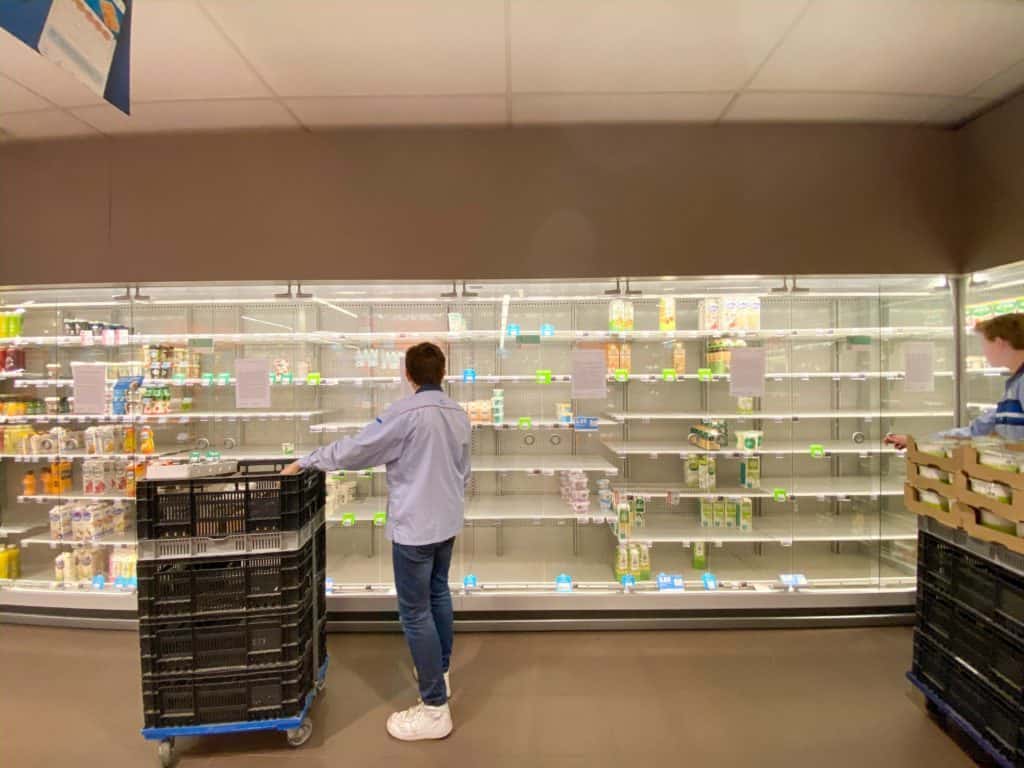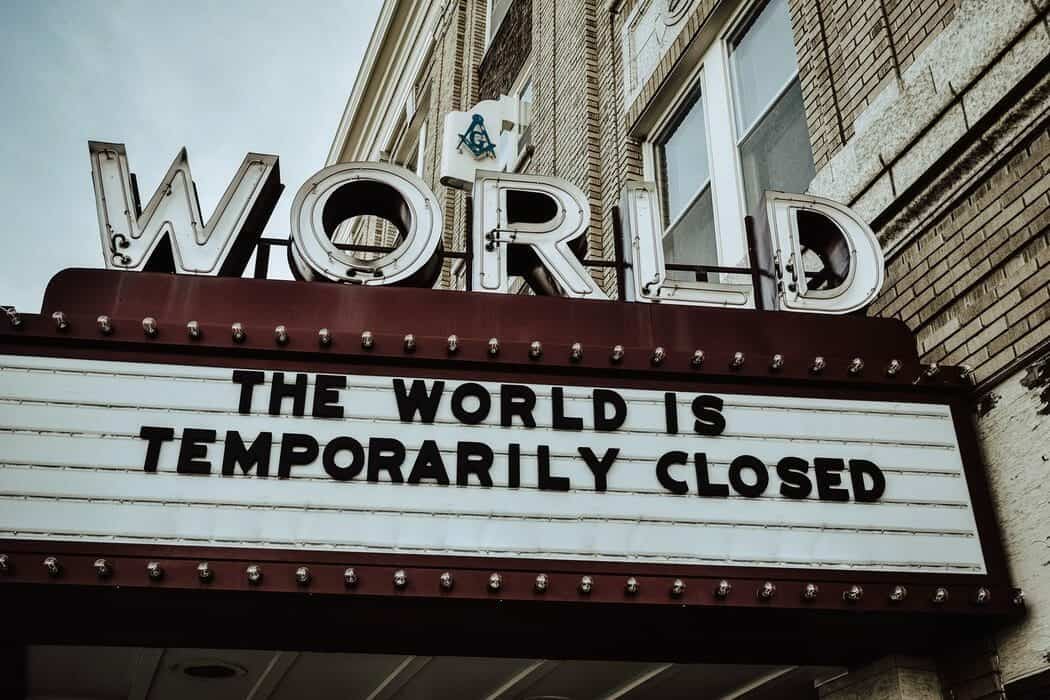│By Lily Cratchley, Gale Ambassador at the University of Birmingham|
‘No more diving into pools of chlorinated water…no more airplanes, no more requests to put your tray table in the upright and locked position…’ 1
If someone had told me last February that in a year’s time, I would be attending 9am lectures in pyjama bottoms, wearing a mask every time I popped to the corner shop for a much-needed bottle of wine, and would be reduced to “tiers” instead of “tears” during winter exam season, then I would have thought them crazy. However, that pretty much sums up my experience of online learning in my final year of university!
In a second year Dystopian Literature module at the University of Birmingham, I studied Emily St. John Mandel’s novel Station Eleven. The novel, set twenty years after a global pandemic, depicts a post-apocalyptic world, which wiped out ninety percent of the world’s population. Despite Mandel’s heavily dramatized content, her writing somewhat prepared me for the long term impacts this current pandemic might potentially cause.

Image by John Michael Thomson on Unsplash.com, https://unsplash.com/photos/9m1V6A8Fm-A
Emily St. John Mandel’s Station Eleven
Mandel’s literary exploration of a pandemic’s beginning has significant crossovers with the outbreak of Covid-19. Mandel terms her fictionalised pandemic as:
“the flu that exploded like a neutron bomb over the surface of the earth.”
The outbreak completely destroys the entire fabric of human society in Station Eleven, reducing humans to criminals and leaving built-up cities in desolation. Whilst Covid has not been detrimental to the same extent, I’m sure most of us can agree our lives currently seem firmly split between a pre-and-post pandemic divide.

Image by Engin Akyurt on Unsplash.com: https://unsplash.com/photos/Ct1qRMGfXj4
Our Hyper-Globalised Present
Mandel is also at pains to highlight the significant dangers of increased air travel on the spread of viruses. Literary critic and University of Birmingham lecturer, Diletta De Cristofaro, notes in The Contemporary Post-Apocalyptic Novel that:
“One of the reasons why the world dies so quickly in Station Eleven is because of its relentless mobility and the ordinary miracle of air travel: people travel across the globe in hours and the virus, horribly resistant to treatment, goes with them.”
By setting a large part of the novel in an airport, Mandel also reflects the serious concerns of our hyper-globalised present world, stressing of the dangers of air travel.

Image by Ashim D’Silva on Unsplash.com: https://unsplash.com/photos/pGcqw1ARGyg
Digging into Gale’s The Times Literary Supplement Historical Archive, I began to accumulate more material on pandemic literature. This archive has plenty of digital resources for literature students on the hunt for more criticism to develop their essays. I stumbled upon Anne Hardy’s commentary on the literary non-fiction text, The Viral Storm by Tom Wolfe. Wolfe’s non-fiction book examines potential threats and risks of a global pandemic in a manner less fabricated, perhaps, than Mandel. This is evidenced in Hardy’s commentary which considers the risks of air travel:
“Whatever the opportunities modern transport and other human activity have created for viral emergence and travel, the historical record suggests that humanity is likely to survive. In the 1920s, doctors were predicting apocalyptic pandemic scenarios resulting from the advent of air travel; so far the apocalypse has been on hold.”
Whilst the danger is noted, Hardy acknowledges that humans can adapt to and manage the threat. These types of articles in Gale Primary Sources prove useful when mapping similar themes and concerns of both fiction and non-fiction pandemic literature – and in underlining their differences.

Stockpiling
The exaggerated extremes of human behaviour depicted in Mandel’s novel Station Eleven, are comparable with those seen over the last year. Mandel’s references to stockpiling and hoarding, for example, are alarmingly evocative of the situation so many of us saw in March 2020: “the next cart was all toilet paper. The cart after that was more canned goods, also frozen meat and Aspirin, garbage bags, bleach, duct tape”.

Martijn Baudoin, https://unsplash.com/photos/fG15eCpnHws
Pre-pandemic Memories
At times, it can be hard to remember our lives before Covid. A world without Zoom or face masks, where night clubs bred new friendships instead of germs, and supermarkets fretted over running out of beer on a Friday night rather than toilet paper on a Tuesday morning. For the characters in Station Eleven, this vagueness of pre-pandemic memory is intensified. They hold on to certain memories of a past life – including air conditioning that “came out of a vent…you’d press a button and whoosh” or when “you walk into a room and flip a switch and the room fills with light” – in an attempt to cling on to the hope that one day these memories will become reality once again.
The novel also compiles an “incomplete list” of once mundane realities that now seem impossible to replicate: “no more diving into pools of chlorinated water lit green from below…no more cities…no more airplanes, no more requests to put your tray table in the upright and locked position…no more countries, all borders unmanned…no more Internet”. Mandel’s prose, suggesting an irreversibility of life’s norms, is depressing and even frightening to the reader, so it’s a relief to return to Hardy’s criticism where she suggests:
“Bubonic plague, syphilis, smallpox, cholera, and the 1918-19 flu pandemic caused great mortalities and great distress, but at no point did they look like achieving near extinction. The pandemic of 1918, the worst in recorded human history, barely left a dent in the world’s cultural, social and economic systems compared with that created by the First World War.”
While Station Eleven’spresentation of a post-apocalyptic world is entertaining and, at times, horribly similar to the situation we may currently find ourselves in, it is important to remember Mandel’s work is purely fictional. The more optimistic article I found in The Times Literary Supplement Historical Archive reassures readers that scientific knowledge, work and processes exist and are prepared for the dangers of a pandemic. “Virologists and epidemiologists have vigilant surveillance systems in place,” Hardy concludes, ensuring that, unlike Mandel’s fictionalised world, the fabric of our human society is set to survive this Covid-19 pandemic.
If you enjoyed exploring pandemic literature throughout this post, and seeing how Gale’s archives relate to and help explain current events, I’d recommend reading about Gale’s archive Refugees, Relief and Resettlement and the role of relevance and research trends in the creation of a digital archive. You may also like posts exploring the impact of the current pandemic on university students:
- Pandemic Perspectives – Interview with Madi, student at National University of Ireland, Galway
- Coping at College – Research Resources and Mental Health
- How I Survived Studying in Lockdown – and You Can Too
Jennifer Stock, a Senior Content Developer with the Gale team, has also written a piece examining how literature can help us understand the pandemic – check out Studying Pandemic Literature on the Gale US blog.
Blog post cover image citation: Image by Edwin Hooper on Unsplash.com https://unsplash.com/photos/Q8m8cLkryeo


